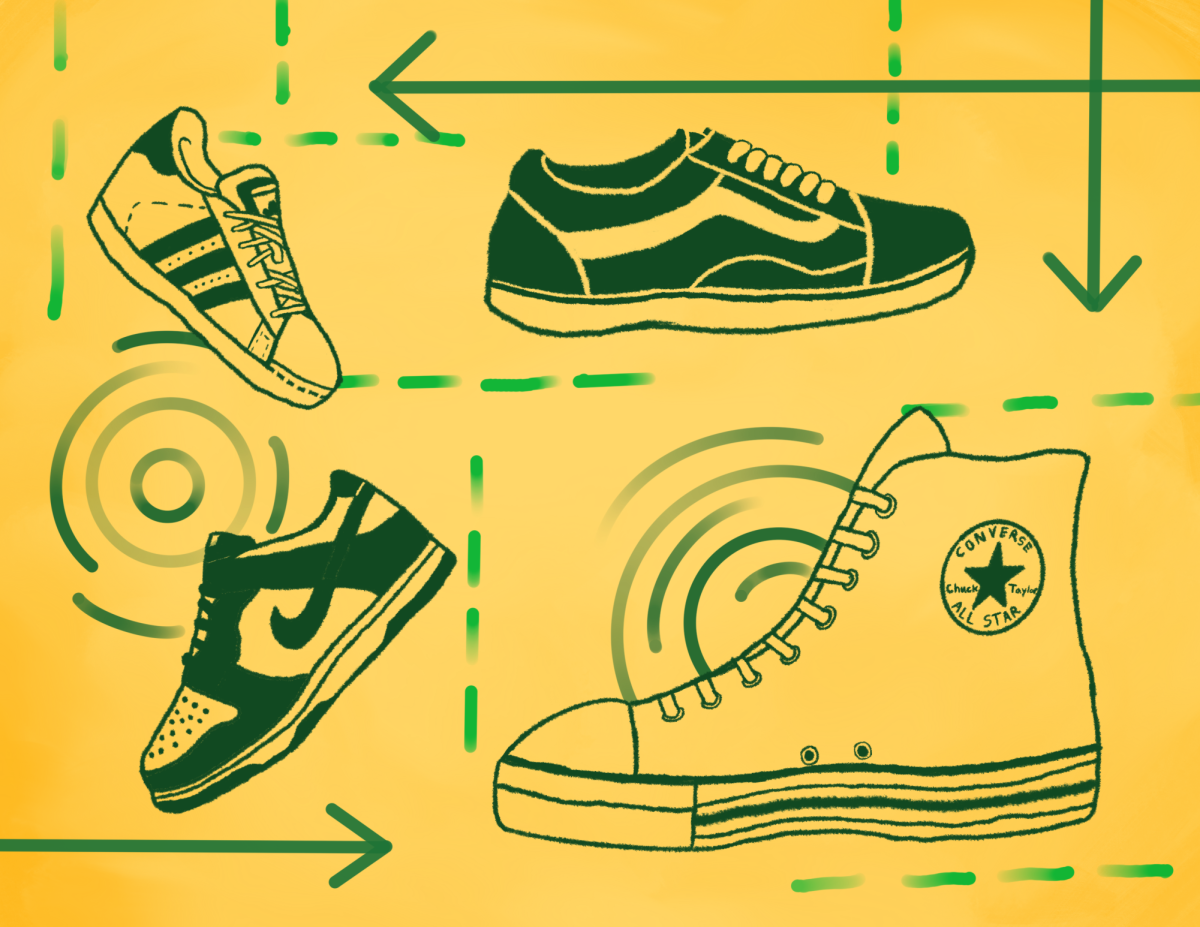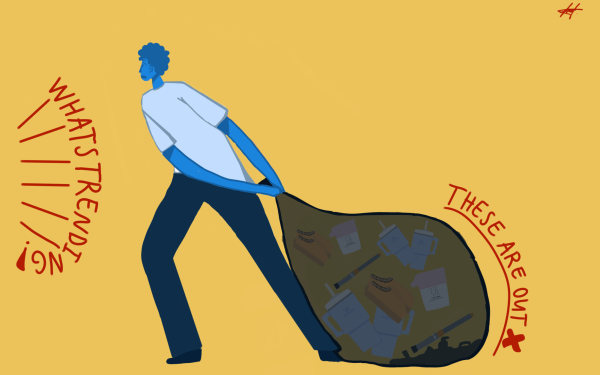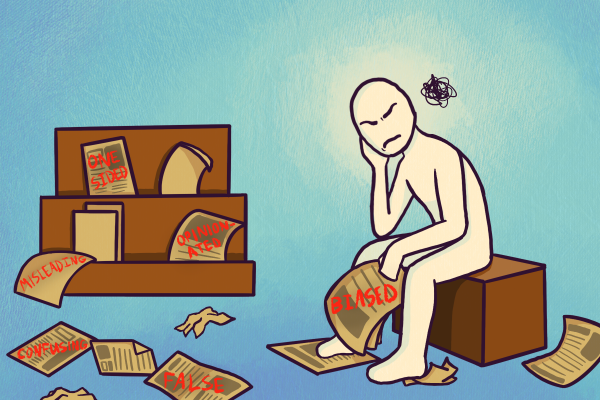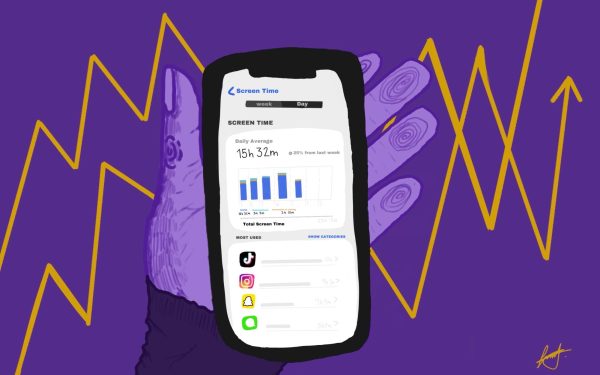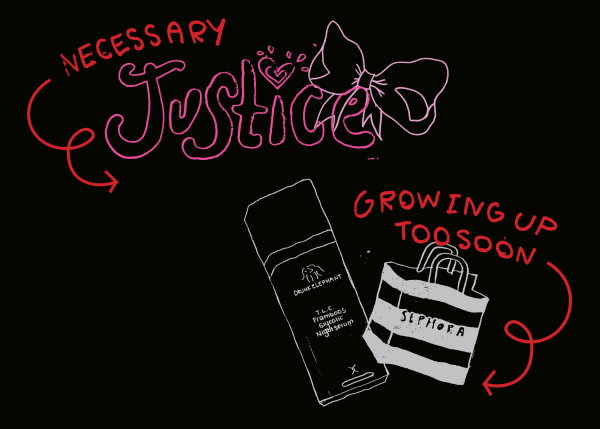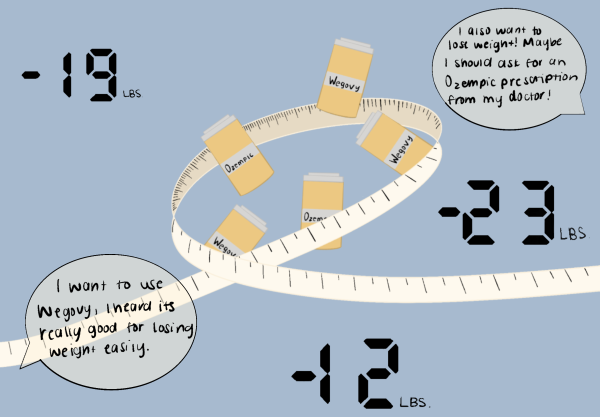[Opinion] Online shopping fuels unnecessary consumerism
Consumer chaos. The convenience of online shopping can cause unnecessary consumerism which can both harm the environment and reinforce a cycle of child labor. Graphic by Julia Landy
March 8, 2021
Our society is in the age of instant gratification. We are living in the ‘I want it now’ reality where we can stream the latest music, movies and audiobooks with ease. We value the ability to buy products quickly and conveniently and get agitated when waiting for our orders. As our patience runs out, we demand a three-day shipping period to be cut down to just one day. We act like spoiled children, always wanting the newest things with no consideration of the long-term consequences our actions will have.
The idea of consumerism was first introduced to Europe in the 16th century, around the time capitalism originated. It further intensified throughout the 18th century due to a growing middle class who embraced the consumption of luxury goods.
The consumerist culture continues today. Instead of being encouraged to save and invest their money, individuals are encouraged to buy short-lived consumer goods, such as clothing or technology. The search to obtain new goods is a never-ending cycle.
A rise in consumerism can be seen in day-to-day life. Goods are mass produced, social media is saturated with advertisements and personal debt levels are reaching unprecedented highs. People are indulging in goods on impulse, failing to consider the economic toll it will have on them or the havoc it will wreck on the environment.
The introduction of one-day shipping, navigable websites and millions of options at the tips of our fingers has exacerbated this problem by making it easier than ever to participate in online shopping. Gone is the need to get in the car and drive to the nearest mall or shopping plaza to browse. Instead, consumers can now purchase practically anything they want, from clothes, food and prescription drugs, all in the comfort of their own home. The only effort required is grabbing a credit card from their wallet and punching in the details.
This minimal level of effort to receive instant satisfaction can be addictive for many.
Numerous individuals have become so focused on their consumption that they gain a feeling of worthiness and significance from the things that they buy, rather than their personal accomplishments. We are so focused on the act of buying rather than the product itself. If we truly loved our products, we would not have the urge to constantly replace them.
A survey done by Statista showed that the number of digital shoppers in the United States increased from 209.6 million in 2016 to 230.05 million in 2021. This increase is likely attributed to the COVID-19 pandemic inducing boredom.
Yet, even before the pandemic, many people spent their free time browsing the web for hours without really needing anything. Individuals may choose to spend their leisure time shopping because they get a thrill from sales. They may want to escape their problems or revel in the status of owning the newest trend.
When consumers are bored, they are easily swayed by various stimuli such as a discount, easy access and free delivery.
“Advertisers perfected strategies to keep people buying by exploiting our emotions, such as fears of what would happen if we didn’t buy a product, our need not to miss out, or our desire to be more attractive,” author Renee Cho said in the 2020 article, “How buying stuff drives climate change,” published by the Earth Institute of Columbia University.
By making online shopping so easy and accessible, unnecessary items are bought. This has many unintended side effects. For one, it harms the environment. As the demand for goods increases, the need to produce these goods also increases. This leads to more pollutant emissions, increased land-use and deforestation and accelerated climate change.
An analysis published in the Journal of Industrial Ecology confirmed that consumers are responsible for more than 60 percent of the globe’s greenhouse gas emissions, and up to 80 percent of the world’s water use.
Another side effect of mass consumerism is the exploitation of women and children for cheap labor. Supply and demand results in companies’ need to hire more workers to create more of their products. In order to make the most profit, many look to other countries as a way to outsource labor for cheap, disregarding safety and paying as low as $1 to $2 a day. 152 million kids aged 5 to 17 are still engaged in child labor worldwide.
It is our duty as a society to recognize our negative shopping habits and work to fix them before it’s too late for both our bank accounts and our planet.








